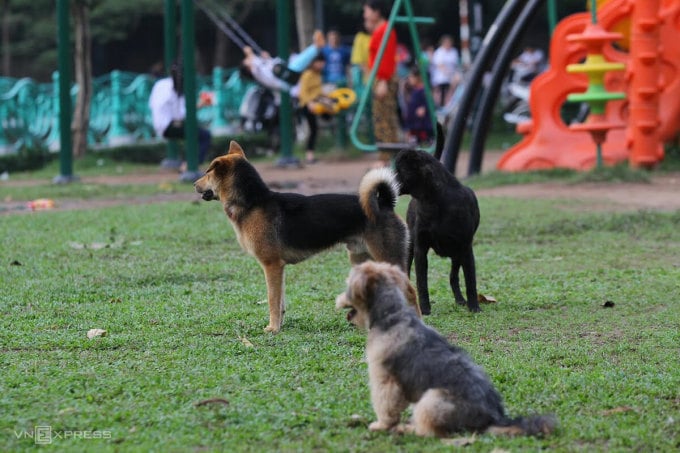The Deputy Director of the Hanoi Department of Agriculture and Rural Development proposed a pilot project to build the capital into a "city that says no to dog and cat meat".
On July 4, the Delegation Affairs Committee (Standing Committee of the National Assembly), the Center for Training Elected Delegates in collaboration with Intelligentmedia and Soi Dog Foundation International held a seminar on "Trading and consumption of livestock meat (dogs and cats): Policies, challenges and opportunities".
Deputy Director of the Hanoi Department of Agriculture and Rural Development Ta Van Tuong said that Hanoi is not only a major political, economic, cultural and scientific center of the country but also a "city for peace", attracting millions of tourists to visit and travel. Therefore, the business, slaughter and consumption of dog and cat meat creates negative feelings for tourists, especially international visitors and foreigners living and working in Hanoi.
To reduce and end the trade and consumption of dog and cat meat, Mr. Tuong proposed implementing solutions to prevent and control rabies, build rabies-safe zones, and manage the slaughter, trade and use of dog and cat meat in the area.
Agencies must organize the capture of stray and ownerless dogs, encourage humanitarian and animal welfare activities; strictly handle violations in the business, trade, transportation, and slaughter of dogs and cats, and prevent and control animal rabies, gradually changing public awareness.

Dogs roam free without muzzles in the flower garden at West Lake. Photo: Pham Chieu
Mr. Rahul Sehgal, Director of International Program Advocacy, Soi Dog Foundation International, assessed that the ban on the trade and consumption of dog and cat meat is an effective tool and Hanoi can be a pilot locality for this tool. Soi Dog Foundation International is committed to supporting the development of a legal framework, communication activities to change behavior and facilitating the establishment of effective coordination mechanisms towards forming a social concept of saying no to the consumption of dog and cat meat.
According to the delegates attending the workshop, eating dog and cat meat is a habit that has existed since ancient times in society. Therefore, to gradually eliminate this habit, it is necessary to raise awareness and education. In the long term, communication campaigns need to be implemented to change behavior based on scientific evidence, focusing on the trading and consuming groups to change the behavior of this group.
According to the World Health Organization, the trade, transportation, slaughter and consumption of dog meat is a potential threat to public health and increases the risk of infectious diseases such as leptospirosis and cholera. Statistics from international animal welfare organizations show that on average, about 5 million dogs and 1 million cats are traded and slaughtered in Vietnam every year.
According to statistics from the Department of Agriculture and Rural Development, Hanoi currently has a total dog and cat population ranging from 421,000 to 460,000 and is on the rise. Since 2018, Hanoi has called for and mobilized "people to give up the habit of eating dog and cat meat", the Department of Agriculture and Rural Development also proposed the idea of "banning the sale of dog meat in inner-city districts from 2021". After 1 year, the Head of the Hanoi Veterinary Department Nguyen Ngoc Son said that the number of people eating dog meat has decreased, but to be truly effective, the campaign must last for a long time, even decades because people's long-standing habits and customs are difficult to change.
Son Ha - Vo Hai
Source link



![[Photo] Prime Minister Pham Minh Chinh starts construction of vital highway through Thai Binh and Nam Dinh](https://vphoto.vietnam.vn/thumb/1200x675/vietnam/resource/IMAGE/2025/5/12/52d98584ccea4c8dbf7c7f7484433af5)

![[Photo] Prime Minister Pham Minh Chinh receives Swedish Minister of International Development Cooperation and Foreign Trade](https://vphoto.vietnam.vn/thumb/1200x675/vietnam/resource/IMAGE/2025/5/12/ae50d0bb57584fd1bbe1cd77d9ad6d97)
![[Photo] Prime Minister Pham Minh Chinh works with the Standing Committee of Thai Binh Provincial Party Committee](https://vphoto.vietnam.vn/thumb/1200x675/vietnam/resource/IMAGE/2025/5/12/f514ab990c544e05a446f77bba59c7d1)





























































































Comment (0)